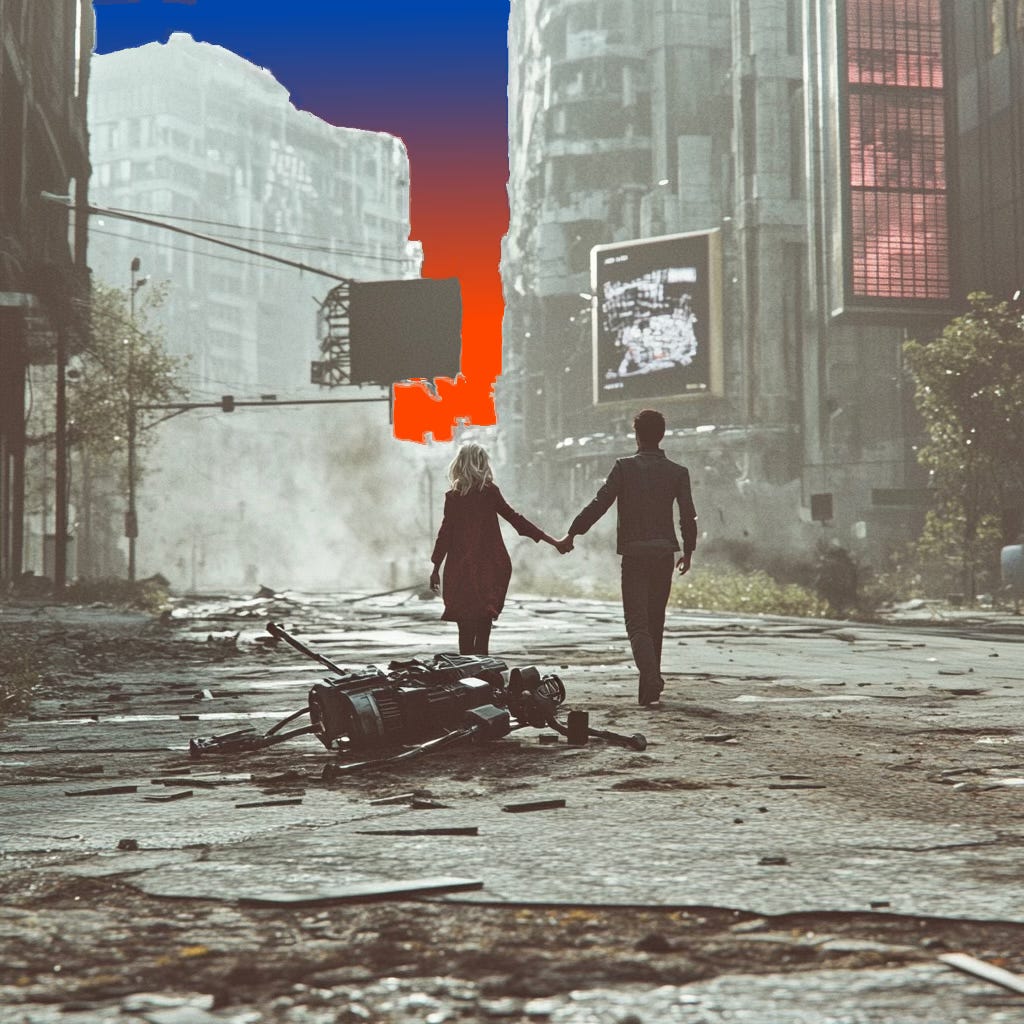Chaos and Control
Can AI Embrace the Unpredictable?
At the most basic level, all computing — including AI — reduces to patterns of binary states (ones and zeroes). The algorithms that operate on top of this fundamental structure and the resulting software can make things very interesting indeed, but underneath it is just voltage switching - albeit at a mind boggling speed.
I mention this as, with AI in particular, it is easy to miss the fact that the essential nature underlying any kind of computing is sequential, even parallel computing has a specific process. the sprawling chaos and mess of human activity is not quantifiable in any meaningful sense. Computers are basically deterministic and humans are mostly not. While the information and data these systems produce are extremely useful, any meaning inherent to any computational activity is endowed by humans.
AI can be made to exhibit pseudo-randomness or adaptability via stochastic processes (e.g., random sampling in neural networks). But creativity, either artistic or entrepreneurial, isn't an exercise in calculation. It thrives in disorder, and feeds on the improvised, and the unscripted. It is a thing that won’t sit still, constantly defying capture, control, and analysis. AI can create a mighty and finely detailed simulacrum of creative work in action but it is not the thing in itself as Kant said in the 'Critique of Pure Reason:'
"We have no concepts of understanding and hence no elements for the cognition of things except insofar as an intuition can be given corresponding to these concepts; consequently, we can have no cognition of an object as a thing-in-itself, but only insofar as it is an object of sensible intuition, i.e., as phenomenon."
Intuition is inherent to the human way of thinking about the world. An utterly alien idea to even apply to a programmatic process.
I have written about length elsewhere in this series about why I do not think AI is creative. My underlying concern is this: entrepreneurs and artists operate, for the most part, in reasonably safe environments. Or, at least environments stable enough to get work done. In our modern society we take this stability for granted. However, when things get very tough, when facing disaster, or life-threatening calamities, humans cannot just rely on training and experience for survival. They can act with a resourcefulness and ingenuity that defies logic and analysis.
20-20 hindsight is useful learning and preparing for the future, but in the most intense moments of life deeper resources often come into play. What they are, who really knows, but humans consistently take actions under extreme duress that work out when all else fails and everything seems lost.
At a lesser behavioural extreme, many of us have had the experience of having the most extraordinary ideas or most useful solutions coming to us out of nowhere, usually while we are mildly distracted as in taking a shower for instance.
AI cannot do this. It exists without that kind of resourcefulness. It cannot be inspired to choose one option or another. It can only make what it thinks of as the right decision based on the calculation of probabilities.
This matters because as we, as a society are becoming increasingly reliant on AI systems. Just last week I was looking at an infographics site and was disappointed by its lack of AI capability. It is part of the fabric of everyday living now and its absence is starting to become conspicuous.
If we enter a global crisis where everything threatens to fall apart. (I will leave it to the reader to drum up their own terrible vision of a living hell.) AI will, undoubtedly, be able to come up with a myriad of solutions. Of that I am sure, but it cannot take the creative leap to ensure survival when pure rationality dictates that all the odds are against you.
It doesn't have deep down resourcefulness or intuition to take the appropriate action. It can't take a leap of faith because it has no faith anyway. All it can do is produce a bunch of probability vectors based on already accumulated data. There is no leap into the unknown for an AI system because it is a machine and all it knows, and what it can know are what makes it predictable. Extrapolation from preexisting data is the powerful promise of a learning machine. But it is limited by logical boundaries.
Life itself is created from chaos. AI is order on a grand scale but it can never have the basic inspiration that is key to life.
When the cataclysm eventually hits, and we have plenty of evidence from even recent human history for that, then we will want AI in our corner. It would be crazy not to. But only as our helper not our guide. We must never defer the ultimate responsibility for our survival to an entity that can never come up with, seemingly from out of nowhere, with an inspired solution.
We don’t just endure disorder; we are forged by it. AI will never know the thrill of a mad idea taking shape. That’s how humans work, and it is going to stay that way.



